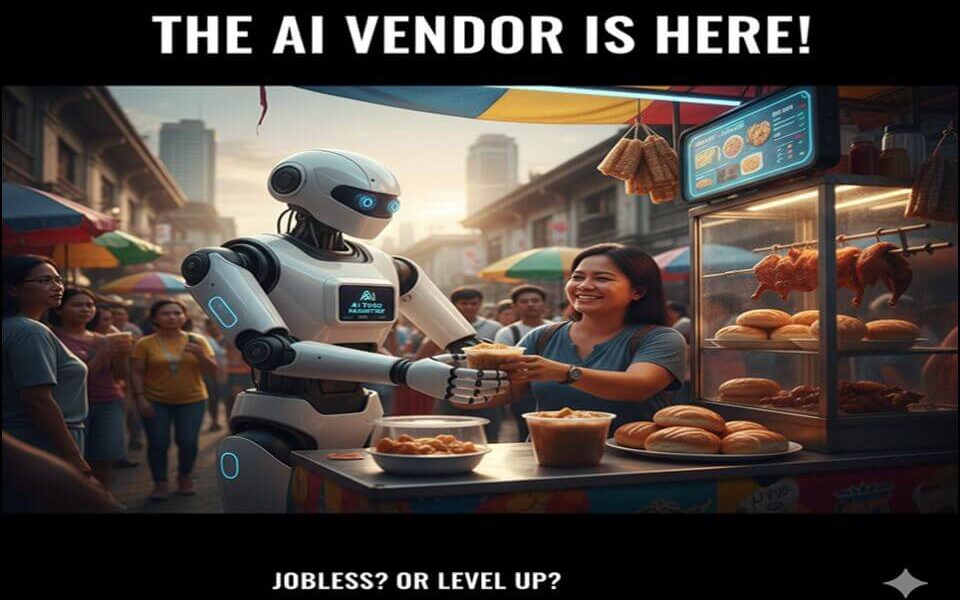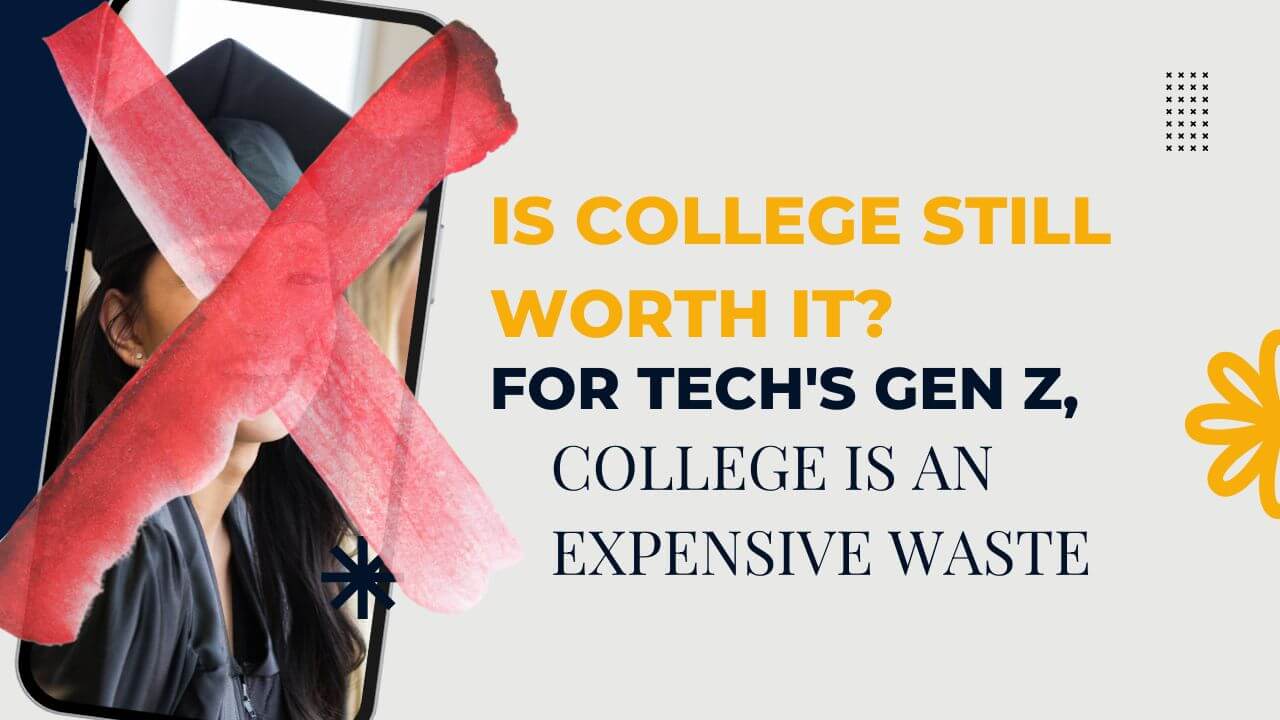Ever scrolled through social media and seen those videos of robots flipping burgers or AI generating entire fashion lines? It makes you wonder: Is AI coming for my job? Specifically, here in the Philippines, where we value our personal touch, hard work, and unique services, how safe are our careers from the rising tide of Artificial Intelligence?
This isn’t about fear-mongering; it’s about being ready (or, in Filipino, handa). From the hardworking BPO (Business Process Outsourcing) agents to the essential mobile vendor—whether they sell taho (silken tofu with syrup and sago pearls) or fresh fruit—no job is completely shielded from change. But the good news? AI often creates more opportunities than it destroys—if you know where to look. Let’s break down the AI job revolution with a Pinoy lens.
The Harsh Reality: Your Diploma and Title May Not Be Enough 🚨
Before we dive into which jobs are safe, let’s face a brutal truth that affects every Filipino family: The careers you spent years studying for are vanishing at an alarming rate. We’re not talking about the next decade; we’re talking about the next two years. The pace of AI advancement means that many traditional roles—especially those dependent on repetitive tasks—are now prime targets for automation. The jobs you think are safe are already on the AI chopping block.
This brings us to a terrifying conclusion for many Pinoy graduates: Your college diploma alone cannot protect you. In the AI era, a four-year degree just proves you completed a course; it doesn’t prove you have the adaptable skills to leverage new technology. The market doesn’t pay for paper; it pays for value. If an AI can provide the same value for free, your diploma is just paper if you don’t continually update your skillset.
What Filipino Jobs Are Most At Risk of Automation?
When we talk about jobs “at risk,” we’re usually talking about routine, predictable tasks. If a task involves following the same set of steps over and over, a machine can probably do it faster and cheaper.
- BPO Data Entry and Simple Customer Service: The Philippines is a global BPO hub, but many basic tasks—like resetting passwords, logging repetitive data, or answering simple FAQs—are already being handled by AI chatbots and voice bots. These bots don’t need kape (coffee) breaks and can work 24/7.
- Factory and Manufacturing Work: Jobs involving repetitive physical actions on an assembly line can be easily taken over by robotics. While this isn’t widespread here yet, it’s a global trend that will eventually impact our factories.
- Simple Accounting and Clerical Work: AI and software can now scan receipts, manage payroll, and do basic bookkeeping faster than a human. If your job is mostly about filing and organizing, you need to upgrade your skills to focus on analysis and strategy.
- Drivers and Delivery Riders: Autonomous (self-driving) vehicles are still a way off in Manila traffic, but the technology is improving quickly. Once perfected, this could affect jeepney (a popular Filipino public utility vehicle) drivers, taxi drivers, and delivery services.
Too Cryptic, Explain Like I’m 12:
Imagine AI is like a really, really smart new student who loves homework. If your job is just copying notes from the board into your notebook—the same notes every day—the AI student will volunteer to do it for everyone in the class, super fast and without mistakes. So, your job of copying notes disappears. But if your job is to draw an original picture based on the notes, or to explain why the notes matter to the class, the AI student can only help a little bit. You still have the most important job: thinking and feeling.
The Copy-Paste Hustle vs. AI Innovation
The Filipino marketplace often thrives on a quick-copy model, but AI is raising the stakes.
The Chicken Joy Phenomenon
Let’s talk about the overnight success story of Chicken Joy sa Kanto. One vendor cracked the code: crispy skin, cheap rice, and a catchy name. The next day, every barangay (village) had its own version—Chicken Joy ni Mama, Chicken Joy Reloaded, Chicken Joy 2.0. By week’s end, the market was saturated, the oil was reused too many times, and the original vendor quietly closed shop.
This is the Filipino hustle: copy success, paste it everywhere, and hope the algorithm of fate favors you. But in the age of AI, this hustle has gone digital. We now copy prompts, paste outputs, and call it innovation.
Read more at: https://www.aiwhylive.com/failure-by-design-ai-philippines/
In the digital world, AI can instantly generate 100 versions of that “Chicken Joy” logo or marketing idea, making quick saturation happen in seconds, not weeks. To win, you must stop copying and start creating genuinely unique value that AI cannot replicate.
What Filipino Jobs Are SAFEST (And Why)?
The safest jobs are those that require Filipino creativity, empathy, and complex problem-solving—things AI struggles with.
- The Care Economy (Nurses, Caregivers, Teachers): AI can diagnose, but it can’t hold a patient’s hand and offer alo (comfort/support). It can deliver information, but it can’t inspire a student or manage a difficult classroom. Our nurses and teachers—our modern-day bayani (heroes)—are secure because their jobs require a puso (heart).
- Creative Professionals (Filmmakers, Designers, Storytellers): While AI can generate images, it can’t capture the unique Filipino spirit, the nuances of our culture, or tell a compelling, original story about Pinoy life. The person directing the AI and refining its work is the real winner.
- Skilled Trades (Plumbers, Electricians, Mechanics): Fixing a busted pipe or a broken tricycle (a motorcycle with a sidecar used for public transport) involves hands-on problem-solving in an unpredictable environment. AI can’t physically reach under your sink yet!
- AI Trainers and Managers: Ironically, one of the fastest-growing job categories is managing the AI itself. People are needed to “teach” the bots, check their work, and integrate them into businesses. This is the future job market!
How Can Every Filipino Become “AI-Proof”? (The Diskarte Strategy)
The key to surviving the AI revolution is adopting a diskarte (street smarts; resourcefulness) mindset. Don’t fight the AI; use it.
- Stop Doing the Repetitive Stuff: If AI can do it, let it! Spend your time on tasks that require judgment, negotiation, and human interaction. If you’re a BPO agent, focus on complex, emotionally charged calls where a human touch is essential.
- Learn to “Talk” to the AI (Prompt Engineering): AI is a tool, like Microsoft Word or Photoshop. The people who know how to ask the AI the best questions (called prompts) are the ones who will be most valuable. Learn how to get the exact output you need.
- Become a Specialist: Instead of being a general accountant, become an expert in tax law for online sellers. Instead of a general writer, become a master of TikTok scripts. Niche down, and AI becomes your assistant, not your competitor.
- Embrace Lifelong Learning: The tech will change every year. Make a commitment to learning new AI tools and skills every few months. Use the free courses and resources online. Your hunger for knowledge (pag-aaral) is your best defense.
The robot isn’t coming for your job; it’s coming for your tasks. If you can level up and focus on the human parts of your job—the creativity, the malasakit (concern/compassion), and the problem-solving—you won’t just survive; you’ll lead the way in the new, AI-powered Philippine economy.
What AI tool are you going to learn this week to strengthen your diskarte?
For more insights into the future of work and the latest AI tools, visit aiwhylive.com.
Sources Cited:
- The Chicken Joy Phenomenon (Read more at: https://www.aiwhylive.com/failure-by-design-ai-philippines/)
- The AI Career Deadline: Is Your Job Safe in 2025? (https://www.aiwhylive.com/ai-replacing-jobs-philippines-2025/)
- The College Diploma vs. Skills: Why Your Paper is Failing in the AI Philippines (https://www.aiwhylive.com/college-diploma-vs-skills-ai-philippines/)







